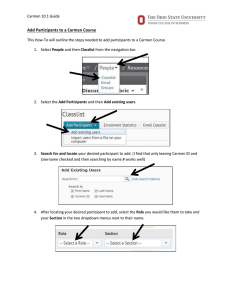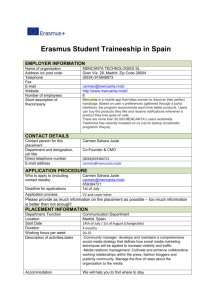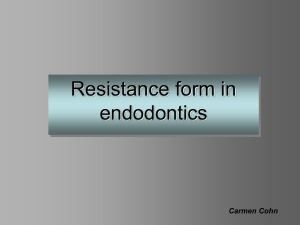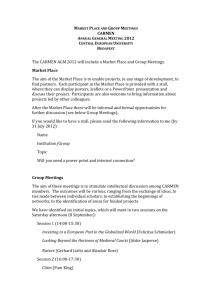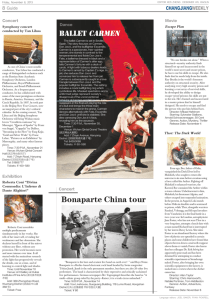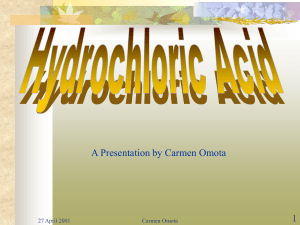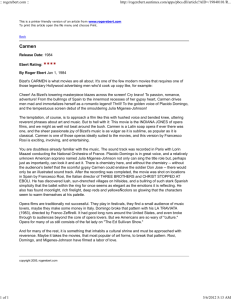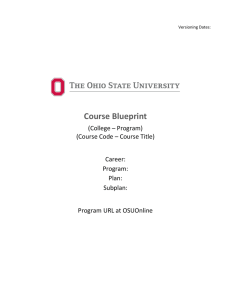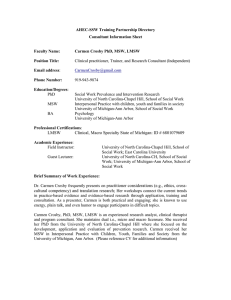Carmen annual meeting budapest_ report
advertisement
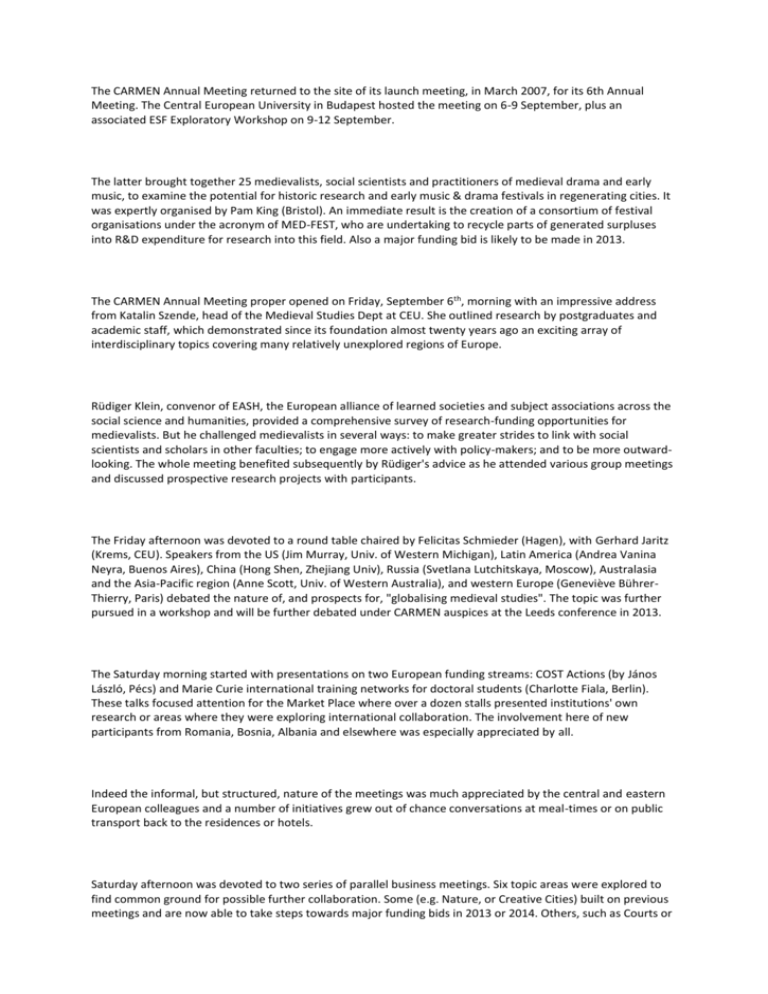
The CARMEN Annual Meeting returned to the site of its launch meeting, in March 2007, for its 6th Annual Meeting. The Central European University in Budapest hosted the meeting on 6-9 September, plus an associated ESF Exploratory Workshop on 9-12 September. The latter brought together 25 medievalists, social scientists and practitioners of medieval drama and early music, to examine the potential for historic research and early music & drama festivals in regenerating cities. It was expertly organised by Pam King (Bristol). An immediate result is the creation of a consortium of festival organisations under the acronym of MED-FEST, who are undertaking to recycle parts of generated surpluses into R&D expenditure for research into this field. Also a major funding bid is likely to be made in 2013. The CARMEN Annual Meeting proper opened on Friday, September 6th, morning with an impressive address from Katalin Szende, head of the Medieval Studies Dept at CEU. She outlined research by postgraduates and academic staff, which demonstrated since its foundation almost twenty years ago an exciting array of interdisciplinary topics covering many relatively unexplored regions of Europe. Rüdiger Klein, convenor of EASH, the European alliance of learned societies and subject associations across the social science and humanities, provided a comprehensive survey of research-funding opportunities for medievalists. But he challenged medievalists in several ways: to make greater strides to link with social scientists and scholars in other faculties; to engage more actively with policy-makers; and to be more outwardlooking. The whole meeting benefited subsequently by Rüdiger's advice as he attended various group meetings and discussed prospective research projects with participants. The Friday afternoon was devoted to a round table chaired by Felicitas Schmieder (Hagen), with Gerhard Jaritz (Krems, CEU). Speakers from the US (Jim Murray, Univ. of Western Michigan), Latin America (Andrea Vanina Neyra, Buenos Aires), China (Hong Shen, Zhejiang Univ), Russia (Svetlana Lutchitskaya, Moscow), Australasia and the Asia-Pacific region (Anne Scott, Univ. of Western Australia), and western Europe (Geneviève BührerThierry, Paris) debated the nature of, and prospects for, "globalising medieval studies". The topic was further pursued in a workshop and will be further debated under CARMEN auspices at the Leeds conference in 2013. The Saturday morning started with presentations on two European funding streams: COST Actions (by János László, Pécs) and Marie Curie international training networks for doctoral students (Charlotte Fiala, Berlin). These talks focused attention for the Market Place where over a dozen stalls presented institutions' own research or areas where they were exploring international collaboration. The involvement here of new participants from Romania, Bosnia, Albania and elsewhere was especially appreciated by all. Indeed the informal, but structured, nature of the meetings was much appreciated by the central and eastern European colleagues and a number of initiatives grew out of chance conversations at meal-times or on public transport back to the residences or hotels. Saturday afternoon was devoted to two series of parallel business meetings. Six topic areas were explored to find common ground for possible further collaboration. Some (e.g. Nature, or Creative Cities) built on previous meetings and are now able to take steps towards major funding bids in 2013 or 2014. Others, such as Courts or Cultural Encounters, were initial scoping exercises, which nonetheless identified areas of common interest. Others, including Multilingualism, were more consciously open-ended and exploratory. In addition, there was space for meetings earlier in the meeting of the Forum for National Associations, and detailed planning for the CARMEN Graduate School to form a Board of Studies and accept course proposals under a common umbrella in September 2013. Overall, more than fifty participants from over twenty countries were present. Particular thanks needs to be recorded for the organisation by CARMEN’s Academic Director, Gerhard Jaritz, assisted by Annabella Pál from CEU and Kateřina Horníčková (Krems). The meeting seemed to mark a step forward for CARMEN, since a large variety of creative connections were being made, spontaneously and unplanned.


